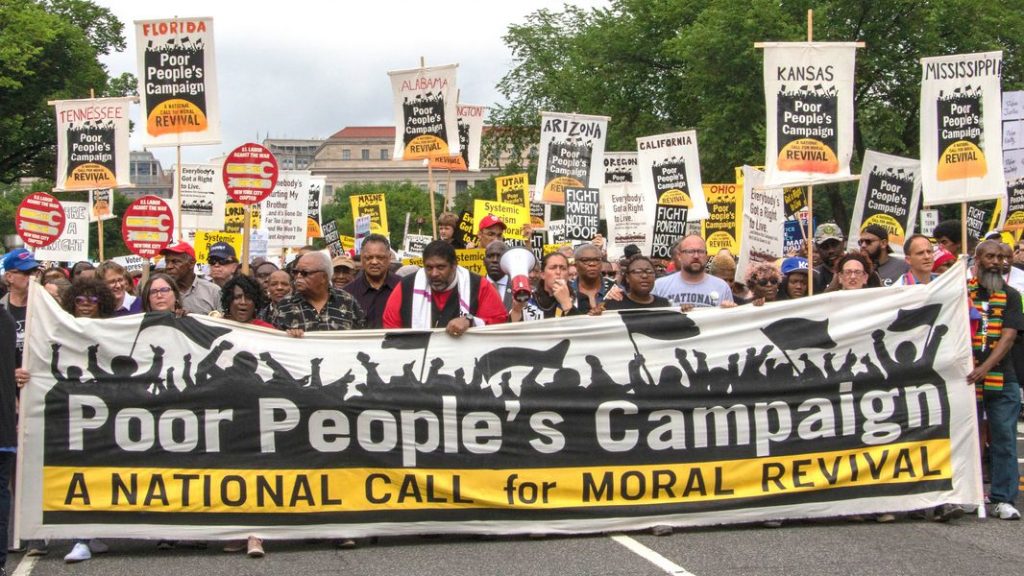It is ‘intellectually dishonest’ for foundations to separate the values that govern their grantmaking from how they manage their investments, say two of the leading voices in the Divest-Invest movement writing in Alliance magazine today. The article from Wallace Global Fund Executive Director Ellen Dorsey and Sierra Club Foundation Executive Director Dan Chu sets out the case for mission-aligned investing and rejects the accusation made by one of the world’s leading climate funders that such strategies are merely ‘virtue signalling’.

Wallace Global Fund Executive Director Ellen Dorsey
‘It is intellectually dishonest – and frankly, a dereliction of our societal duty – to see ourselves as a grantmaker on one side and an unconnected investment house on the other. The two parts are, in fact, one whole. They cannot and should not be governed by different values and rules. Both our programmes and our investments must be vetted according to our mandate to serve the public good,’ Chu and Dorsey write.

Sierra Club Foundation Executive Director Dan Chu.
Wallace Global and the Sierra Club Foundation are two important voices in the growing Divest-Invest movement. Both organisations divested their assets years ago, choosing instead to invest in companies that promote climate and clean energy solutions. Chu and Dorsey say that the decision actually led to their financial benchmarks being exceeded.
Large foundations see other avenues for change
Though many support divestment – $14.5 trillion in assets has been divested, according to Divest-Invest – some of the larger players in the philanthropy sector haven’t found the strategy to work for them.
Among them is the Hewlett Foundation, a major voice in the climate philanthropy space that has chosen not to divest. CEO Larry Kramer explains that because of Hewlett’s size, divesting would have a negative impact on their returns. Hewlett’s endowment is nearly $10 billion. In comparison, Wallace Global’s is $130 million and the Sierra Club Foundation’s is $150 million.
‘Some foundations with smaller endowments say, “we’ve been able to divest from fossil fuels and it hasn’t hurt our returns.” That may be true for them, but because of our size, we get access to managers who produce systematically better returns than they get. And those managers have people queueing up to invest with them precisely because they are that good, so the amount of leverage we have over those managers is limited. If we said to them “divest from fossil fuels”, they would say “take your money elsewhere”,’ Kramer said to Alliance.
It is intellectually dishonest – and frankly, a dereliction of our societal duty – to see ourselves as a grantmaker on one side and an unconnected investment house on the other.
Kramer also said that in his view, grantmaking was a more effective tool: ‘I am perfectly happy to take money from fossil fuel companies and use it to do them in, because I believe grantmaking is going to be more effective in achieving that end than divesting would be.’
The UK’s Wellcome Trust, which is the world’s fourth-biggest foundation with an endowment of £26 billion, mirrors Hewlett’s approach. Wellcome have recently announced plans to focus funding on global heating but still intend to invest in fossil fuels. The Wellcome Trust argues that the influence of being an investor allows for more meaningful change.
‘Our position remains that we’ve chosen to be an active shareholder. So, we choose to engage with the companies that we invest in, in order to enable them to be a responsible citizen in the world,’ said Wellcome Director of Strategy Ed Whiting in an interview with Alliance.
‘We feel there has been benefits from being in the room and arguing for a pathway that you wouldn’t necessarily get if you do the one-time divestment and are outside of it. So, the position we’ve taken is to be in the room – we know that that’s not something that everyone agrees with. And it’s something that we continue to debate inside Wellcome, but it is about also trying to be an agitator for a more sustainable pathway for the future as well.’
Whiting claimed that Wellcome’s strategy to be an active shareholder had led to a number of companies the foundation was invested in moving towards net zero.

A march by the Poor People’s Campaign, a movement supported by the Wallace Global Fund. Photo credit: Wallace Global Fund.
‘Decades-old excuses are wearing thin’
However, Chu and Dorsey see it differently: ‘Our investments should not drive the problems we ask our grantees to solve, nor should we leave valuable money on the table that could scale solutions in service of our environment or our communities. To pretend that our investments have no impact on our mission is patently false.’
The time is too short and crisis too great to entertain any other option than divestment, they argue: ‘It is incomprehensible why, in the face of mounting evidence of moral, economic, and ecological obligation, our peers still decide to remain in funds invested in climate change-fuelling fossil fuels. Their investments are making problems worse and that – even more fundamentally – are underperforming today and may soon burn out altogether. The time is now, and decades-old excuses are wearing thin in the light of demonstrable evidence.By not investing to scale climate solutions, we are leaving critical money on the table that can accelerate this historic transition faster and mitigate greater losses of life, livelihood, and biodiversity,’ they write.
It’s not just a moral imperative, it’s financially viable. Since the Sierra Club Foundation and Wallace Global made the decision to switch the investments of their respective endowment from fossil fuels to companies that promote climate and clean energy solutions, they have found their financial benchmarks exceeded. Such an outcome wasn’t isolated – a study from the Croatan Institute looking at some 200 organisation that joined Divest-Invest reports that every single one of them met or exceeded their risk/return profiles over the last five years.
It is incomprehensible why, in the face of mounting evidence of moral, economic, and ecological obligation, our peers still decide to remain in funds invested in climate change-fuelling fossil fuels.
‘For those foundations arguing that divesting would limit their universe of profitable, high-yield funds to invest in, the exact opposite may soon be true. The impending collapse of the fossil fuel sector means that any well-performing fund either is or should already be divesting itself of fossil fuels to avoid devastating losses, negative shareholder returns, and failure of their fiduciary duty,’ Dorsey and Chu wrote.
A situation in which dividends from the fossil fuel industry are shrinking isn’t a distant future – it appears to be happening already. Over the last several years, the fossil energy sector has been the lowest-performing financial sector, and the effects of the Covid-19 pandemic on movement this year is likely to impact that further. Back in April, the price of oil turned negative for the first time in history.
‘There can be no business as usual’
The failure of our current system is clear, write Dorsey and Chu, adding: ‘Philanthropy has a unique role to play. Just like it is time for a new economic model, it is time for a new model of philanthropy where we are accountable for our impacts – from our operational practices, our grants, and our investments – and accountable to our stakeholders. In doing so, we will embody the values of a new economy while we help create it. Our two foundations believe that the compounding crises the world faces today are so urgent, there can be no business as usual for philanthropy.’
Elika Roohi is digital editor at Alliance.






Comments (0)